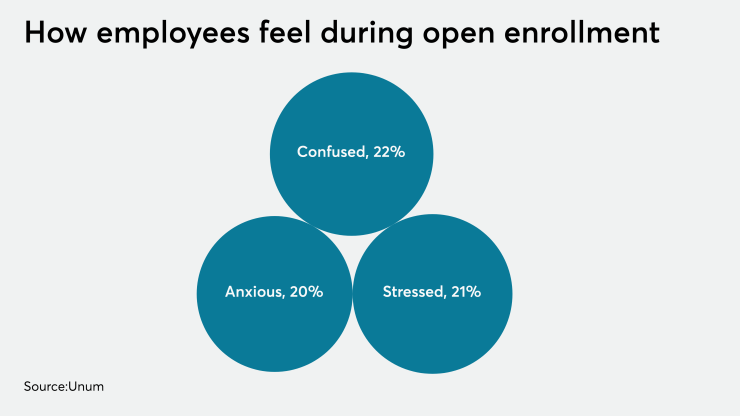Under normal circumstances, the open enrollment season is a challenging time for HR departments, but 2020 is anything but normal. The COVID-19 crisis has had a profound impact on the economy, unemployment rates, the healthcare system and more.
As this year’s open enrollment period rolls up, many employers and HR teams will need to consider a new virtual strategy on how to best inform employees of their health plan options and benefits.
“The most important challenge with open enrollment is the attention span of your enrollees,” says Kevin Robertson, chief revenue officer at HSA Bank. “Regardless of whether this is being done on a remote basis or face to face, most Americans don't have a proficiency in understanding benefits and healthcare. As such, they get overwhelmed easily… and don’t take adequate time to understand premiums, deductibles and copays and how that impacts their lifestyle.”
In a recent one-on-one interview, Robertson shared his thoughts on strategies employers can implement to tackle this year’s open enrollment and provide employees with better tools to make the most informed decisions regarding their benefits.
What unique challenges has the COVID-19 crisis brought to this year’s open enrollment season?
The number one impact that COVID has had is bringing about a sense of unsurety. There's an awful lot of unknowns, both for employers and employees. A big challenge for employers is that they're asking people to make decisions for the next year, when they have so much in the back of their minds.
Most employers realize the economic realities that are going to come after the pandemic. Many industries have already, unfortunately, faced very dire economic circumstances. That is going to cause a tremendous amount of economic pressure and workforce pressure for employers to deal with. They may not see much of that in the current open enrollment season, but as they look to the benefits picture for 2022 and beyond, it’s definitely going to flavor a lot of their decisions.
Read More:
Employers were caught off guard by the pandemic, and by the time there was more known, it may not have translated into dramatic plan design changes for 2021. But it’s going to be a major theme heading into next year. We're already seeing a lot of employers inquiring about that. Because of the economic realities facing American businesses and employers, it's going to create additional interest in Consumer Directed health plans.
What strategies should HR implement to help employees navigate open enrollment in a virtual world?
There are three cornerstone beliefs that most employers should have. First and foremost, have a strategy. You're never going to achieve an outcome, you're never going to get to your destination unless you have a plan for where you’re going.
Number two is actually realizing that you have to be deliberate about putting that plan in action. Have an objective and think about what you want to achieve. Then, think tactically about how to get there.
The third pillar is actually recognizing all of the pressure that employees are under. Americans are stressed right now and whether or not they've been directly impacted by COVID-19 or not, 100% of them are indirectly impacted and everything in their life has changed. Employers are going to have to walk a mile in their employees’ shoes and recognize that they’re going to have to do things a little bit differently. Think about engaging them using different media and different tactics for the way they communicate.
Employers have not traditionally done a good job of engaging the second decision maker at home, whether it be a spouse or significant other. A lot of times what ends up happening is they rely upon the employee to take those messages back to the other decision maker at home. Most employers should welcome those decision makers into the open enrollment process. For instance, if you're going to host an educational webinar that explains employee options, why not encourage the other decision maker to sit in on those webinars and learn?
What lessons should HR take away from the COVID-19 crisis?
The American healthcare psyche has been forever altered by the pandemic, just like the workplace. One of the biggest challenges is the mindset of ‘Hey, it's open enrollment so I’ve got to decide what I'm going to do with my healthcare and my insurance benefits for the next 12 months.’ Employers must break that cycle and get people to think about what they’re going to need for healthcare over their lifetime.






